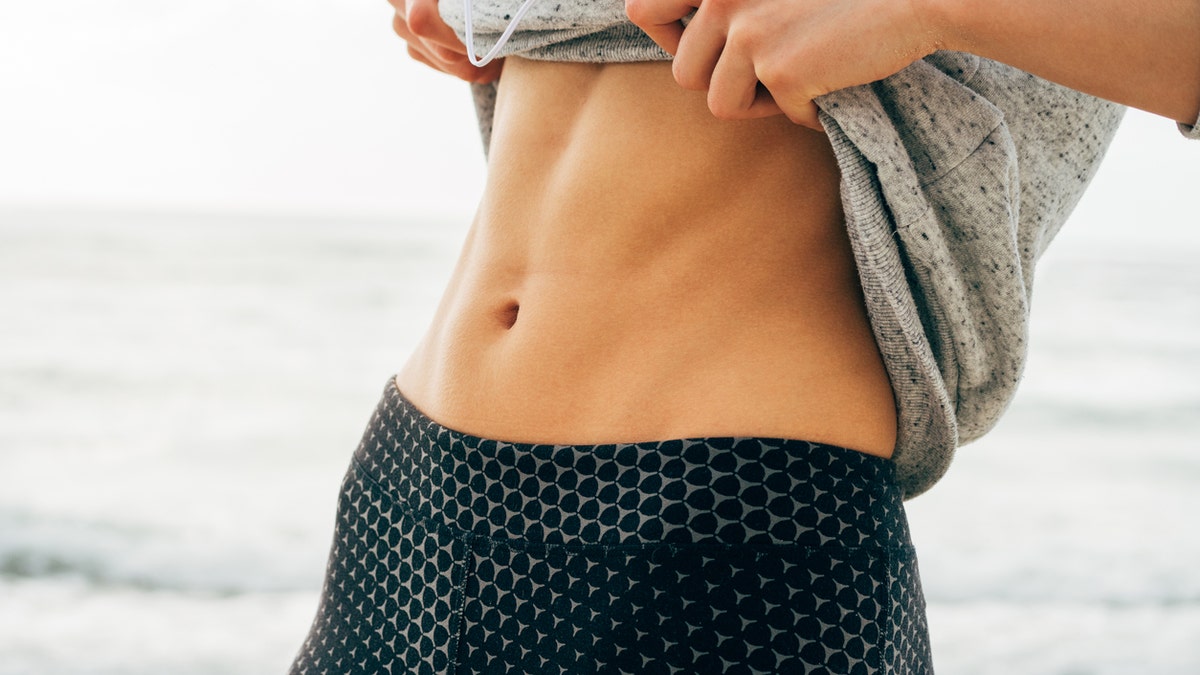
Young girl showing sporty belly against the sea on the beach (iStock)
When you're trying to lose weight, you might feel like your stomach actually shrinks during weeks when your healthy-eating habits are on point—and seems to physically expand to allow for more eats during times when you've indulged in an extra cheat meal (or three). But can your stomach actually stretch to allow more food—or shrink when you're cutting back?
Kind of, but the process is a little more complicated than that, says Kyle Staller, M.D., a gastroenterologist at Massachusetts General Hospital. “The stomach is an organ that’s made to stretch,” he says.
RELATED: CAN WAIST TRAINERS REALLY GET YOU THAT LITTLE IN THE MIDDLE?
When you eat food, it doesn’t just plop into a big bag, he explains—it goes into something called the fundus, the upper part of your stomach, first. The fundus stretches out as much as it can to accommodate the food you put in, but everyone’s fundus has different thresholds. Some people can fit in a lot in (think: competitive eaters) while others don’t have as much space to work with. This explains why you may legitimately be able to always have room for dessert but not another entree—you're actually working with less volume.
RELATED: THIS IS THE BEST WORKOUT FOR WEIGHT LOSS, ACCORDING TO SCIENCE
If you have a big meal, your stomach doesn’t magically get bigger and stay that way—it shrinks back down to its previous size in about four hours or less as your food is pushed along to the small intestine, Staller says. But if you’re regularly eating more than usual and at a faster pace than your stomach can signal to your brain that you’re full, it’s possible for you to train your fundus to accommodate more food.
On the flip side, if you don’t eat as much as usual for a while (like when you’re trying to lose weight), you stomach won’t necessarily shrink, but it won’t be able to fit in as much food as before right away, Staller says. That explains why you tend to feel fuller faster when you eat a big meal after dieting. “It’s like your muscles—you’ll be able to do less and less each time when you don’t use it,” Staller explains.
RELATED: HOW TO TURN OFF YOUR WEIGHT GAIN HORMONES
So, next time you want to make room when you spot a tasty-looking flan on the dessert menu, know this: Your fundus is probably up for it—and provided you pick up your clean-eating habits in the a.m., it'll shrink back to normal in no time.
